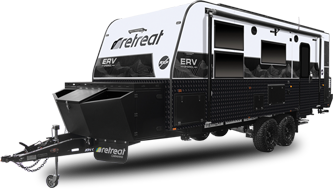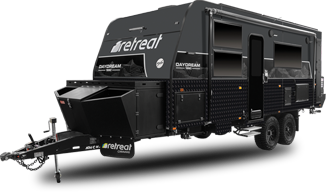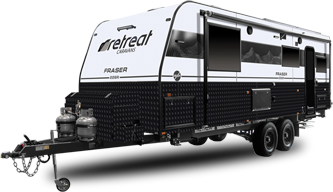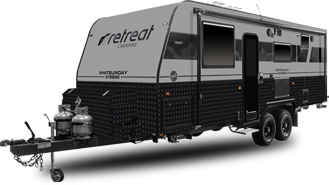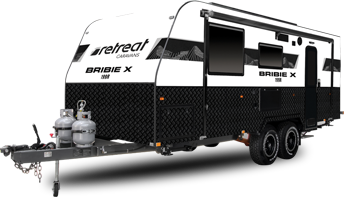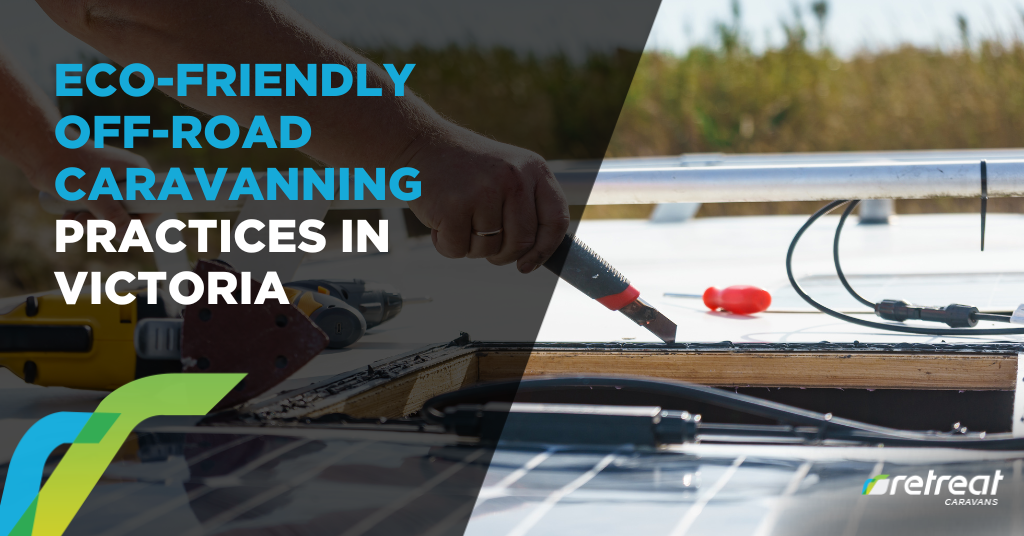
Eco-Friendly Off-Road Caravanning Practices in Victoria
Victoria’s off-road tracks offer adventure, freedom, and breathtaking landscapes. But with growing tourism, responsible caravanning is more important than ever. Travellers need to minimise their impact while enjoying remote locations.
Many luxury caravans now include eco-friendly features, but sustainable travel requires more than just the right gear. It’s about respecting nature, reducing waste, and leaving no trace. Whether you’re heading to the High Country, the Grampians, or along the Great Ocean Road, adopting eco-conscious habits will protect these places for future explorers.
1. Choosing an Eco-Friendly Caravan
The right caravan makes all the difference. Modern off-grid caravans use sustainable materials, energy-efficient appliances, and better waste systems. These features reduce emissions and lessen environmental impact.
When selecting a caravan, look for:
- Solar panels – Harness the sun’s power instead of relying on generators.
- Water-saving technology – Low-flow taps and efficient plumbing systems help conserve water.
- Compostable toilets – Reduce chemical use and promote sustainable waste management.
- Insulated designs – Better insulation lowers energy use, keeping interiors comfortable.
Some manufacturers also use recycled or sustainably sourced materials. Fibreglass or composite panels often replace traditional wood, reducing deforestation. Investing in an eco-conscious caravan means fewer resources are used over time.
2. Sustainable Energy Solutions for Off-Grid Travel
Powering a caravan responsibly is essential. Traditional generators consume fuel and create pollution. Instead, off-road travellers should rely on renewable energy.
Key sustainable power solutions include:
- Solar power – High-efficiency solar panels store energy in lithium batteries, providing clean power for days.
- Wind turbines – Small wind generators complement solar panels, especially in windy locations.
- Energy-efficient appliances – LED lighting and inverter fridges use less power, extending battery life.
A well-designed setup improves efficiency. Many travellers invest in off-grid caravans and sustainable travel solutions to ensure energy independence while reducing their environmental footprint. A strong battery system, paired with smart energy management, keeps power consumption low without sacrificing comfort.
3. Minimising Water Waste in Remote Areas
Water is scarce in off-road locations. Responsible caravanners must manage their supply wisely. Simple strategies help conserve water and protect natural resources.
Practical ways to reduce water waste include:
- Using portable water filters – Avoid plastic bottle waste by filtering creek or rainwater.
- Collecting rainwater – Store rainwater for washing and other non-drinking purposes.
- Taking shorter showers – A 60-second rinse can be enough in remote areas.
Greywater management is also key. Some regions restrict greywater disposal to prevent contamination. Carrying a greywater tank or using biodegradable soaps reduces environmental impact. Many eco-conscious travellers also explore power solutions for eco-conscious off-grid caravanning to optimise their water and energy use while travelling sustainably.
4. Reducing and Managing Waste Effectively
Rubbish left behind in remote areas harms wildlife and pollutes landscapes. Off-road caravanners should adopt a “pack in, pack out” mindset.
Best waste management practices include:
- Separating recyclables – Carry separate bins for plastic, glass, and general waste.
- Composting organic waste – Use a compost bin for food scraps instead of leaving them behind.
- Avoiding single-use plastics – Bring reusable containers, utensils, and cloth shopping bags.
A great example is Wilsons Promontory, where strict waste policies ensure visitors leave no trace. Travellers must remove all waste, including food scraps, to protect the ecosystem. Following similar practices in off-road areas keeps the environment clean and healthy.
5. Choosing Sustainable Campsites and Travel Routes
Selecting the right campsite reduces impact on fragile ecosystems. Many off-road tracks cross conservation zones where wildlife and plant life are highly sensitive.
When setting up camp:
- Use designated camping areas – These sites are built to handle visitors without damaging nature.
- Stick to marked tracks – Avoid creating new paths that disturb flora and fauna.
- Respect fire bans – Uncontrolled fires cause long-term environmental damage.
The Alpine National Park has seen damage from off-road camping in unauthorised spots. Stick to approved areas and follow local regulations to help preserve these natural landscapes.
6. Wildlife Protection and Responsible Off-Road Driving
Off-road travel often brings encounters with native animals. While these moments are exciting, they also come with responsibilities.
To protect wildlife:
- Drive slowly – Many animals, like kangaroos and echidnas, cross roads unexpectedly.
- Avoid feeding wildlife – Human food disrupts natural diets and can make animals dependent on tourists.
- Respect breeding seasons – Some areas restrict access during critical wildlife breeding times.
In the Grampians, conservation efforts focus on protecting native species from human impact. Travellers who follow ethical wildlife practices help ensure these efforts succeed.
FAQs
1) What are the best eco-friendly power solutions for off-road caravanning?
Solar panels and lithium batteries are the most effective power solutions for off-road caravanning. Solar energy provides a renewable, silent, and emissions-free power source, making it ideal for remote travel. Modern lithium batteries store solar power efficiently, lasting longer than traditional lead-acid batteries while requiring less maintenance. In windy areas, small wind turbines can complement solar setups, providing additional energy when sunlight is limited.
Using energy-efficient appliances also helps conserve power. LED lights, inverter fridges, and low-power cooking devices extend battery life and reduce reliance on fossil fuels. A well-designed battery management system ensures power is distributed efficiently, preventing unnecessary drain. Some travellers also use portable solar generators for backup energy. By relying on renewable energy and optimising consumption, off-road caravanners can enjoy long trips without harming the environment. Sustainable power solutions make off-grid travel more self-sufficient and eco-friendly.
2) How can I conserve water while off-road caravanning?
Water is a limited resource in remote areas, so conserving it is essential. A simple way to reduce consumption is by using low-flow taps and showerheads, which significantly cut down water use without compromising functionality. Short showers, quick hand washes, and reusing water for multiple purposes also help extend supply. Many off-road caravanners install water tanks and filtration systems to make the most of available resources.
Carrying a portable water filter allows travellers to safely use natural water sources, reducing reliance on bottled water. Collecting rainwater is another effective strategy, especially for washing dishes or cleaning gear. Greywater management is equally important—using biodegradable soaps and storing greywater in dedicated tanks prevents pollution. Many power solutions for eco-conscious off-grid caravanning include efficient water pumps, helping travellers optimise water use without waste. Responsible water use ensures sustainable off-road travel.
3) What is the best way to manage waste when travelling off-road?
Waste management is critical for preserving natural environments. Off-road caravanners should follow the “pack in, pack out” principle, ensuring nothing is left behind. Separating waste into recyclables, compostable items, and general rubbish makes disposal easier and more eco-friendly. Many off-grid travellers carry reusable containers, cutlery, and water bottles to avoid single-use plastics. Switching to biodegradable cleaning products also reduces environmental harm.
Food waste should be stored properly to prevent attracting wildlife. Composting is an effective way to manage organic waste, but if composting isn’t possible, food scraps should be sealed and carried out. When disposing of general waste, travellers should use designated bins at camping areas or take rubbish home. Reducing packaging before a trip also minimises waste. Keeping campsites clean helps protect wildlife, preserves natural beauty, and ensures off-road tracks remain open for future travellers.
4) Are there any restrictions on where I can camp in Victoria’s off-road areas?
Yes, many off-road areas in Victoria have specific camping regulations to protect fragile ecosystems. National parks and conservation areas often have designated camping sites that minimise environmental impact while allowing visitors to enjoy nature responsibly. Camping outside these areas can damage vegetation, disturb wildlife, and contribute to soil erosion. Travellers should always check local guidelines before setting up camp.
Some areas require permits, especially in high-traffic or environmentally sensitive zones. These permits help manage visitor numbers and fund conservation efforts. In some regions, free camping is allowed, but travellers must follow leave-no-trace principles. Restrictions may also apply to campfires, vehicle access, and greywater disposal. The best way to ensure compliance is by visiting local park websites or checking signage on-site. Respecting these rules helps preserve Victoria’s wilderness and ensures future generations can enjoy off-road camping.
5) How can I drive responsibly to protect the environment and wildlife?
Responsible driving is key to minimising environmental impact. Sticking to designated tracks prevents damage to fragile ecosystems and reduces soil erosion. Driving on soft or muddy ground can create deep ruts that take years to recover. If a track is too wet or unstable, choosing an alternative route is the best option. Avoiding off-track driving also helps protect native plant life.
Wildlife safety is another major concern. Many animals, such as kangaroos, wombats, and echidnas, are active at dawn and dusk. Driving slowly and staying alert reduces the risk of collisions. If an animal is spotted on the road, slowing down and allowing it to move safely is the best approach. Feeding wildlife should always be avoided, as it disrupts natural behaviours. Travelling in small groups also minimises disturbance, helping to keep off-road areas as untouched as possible.
5) Travel Lighter, Leave No Trace
Off-road caravanning in Victoria offers adventure and freedom, but it also comes with responsibility. Choosing an eco-friendly setup, minimising waste, and respecting wildlife ensures these landscapes remain unspoiled. Whether heading to the High Country or coastal tracks, small actions make a big difference.
For those looking to explore off-grid locations with a sustainable mindset, Retreat Caravans offers a range of eco-conscious models built for the Australian outdoors. See below for our full range of caravans, all carefully designed with you in mind:



